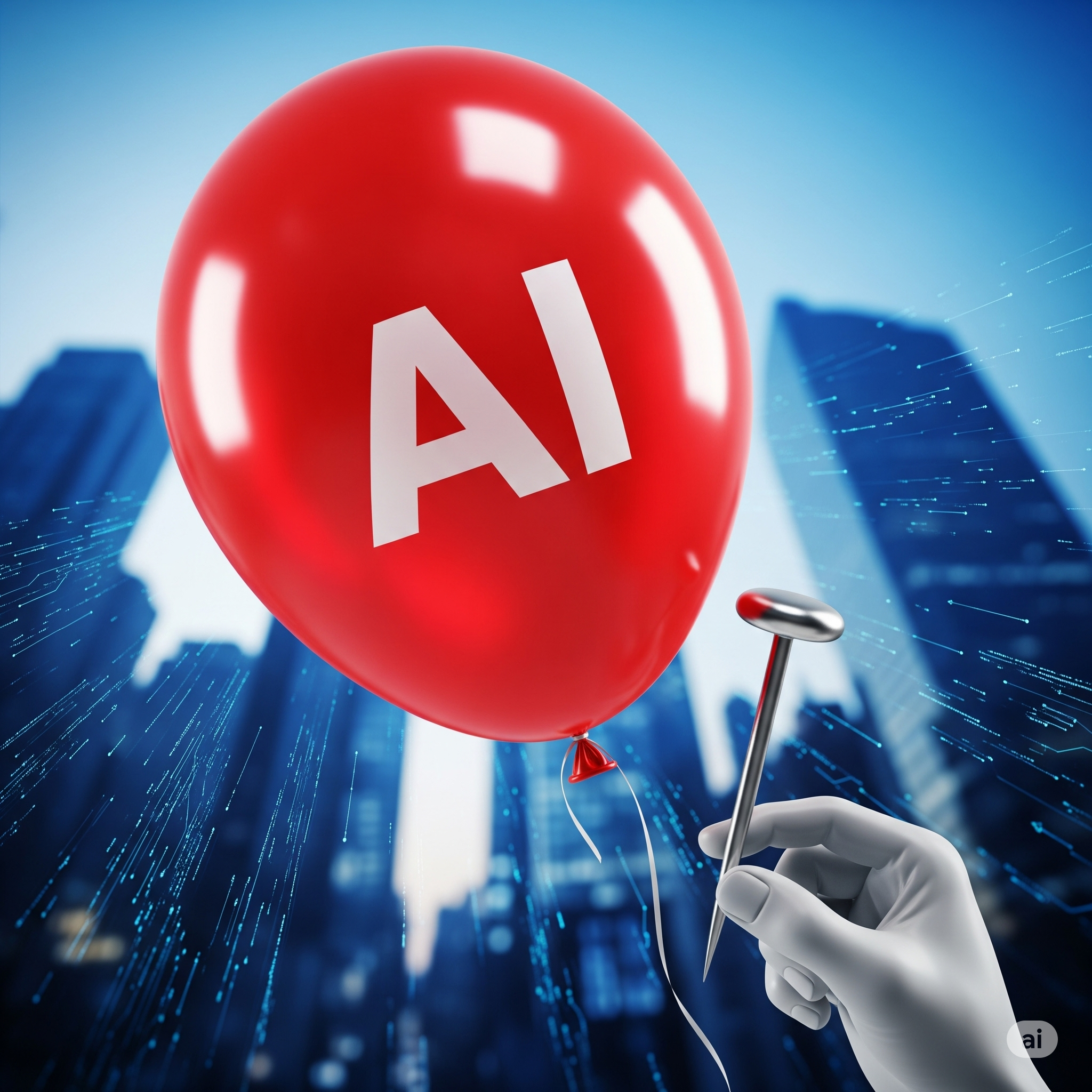Is the AI Bubble About to Burst?
Fears of an AI Market Crash Grow as Investor Optimism Fades
Concerns are mounting over a looming stock market downturn as enthusiasm for artificial intelligence begins to fade, according to a column by economics writer Phillip Inman, published in The Guardian.
Inman notes that U.S. tech stocks have fallen sharply in recent weeks, with more disappointing results expected before the end of August. He warns the situation could echo the dot-com crash of 2000, when investors dumped shares in companies that looked promising on paper but ultimately became a heavy burden.
Federal Reserve Chair Jerome Powell attempted to calm nerves during his address at the annual Jackson Hole Symposium in Wyoming. While voicing concern over persistent inflation, Powell also signaled potential interest rate cuts, offering some relief to heavily indebted companies.
The stakes are higher than usual for stock markets, given that many American retirement funds are now directly invested in listed tech firms, especially those pouring billions into AI ventures that have yet to turn a profit.
A recent MIT study revealed that 95% of companies investing in generative AI have not seen any financial returns. This came shortly after OpenAI CEO Sam Altman called some company valuations “crazy,” a comment that analysts say acted as a wake-up call for investors and triggered sharp sell-offs.
Last week alone, shares of Palantir—a U.S. government contractor specializing in data and surveillance software—fell nearly 10%. Nvidia, the AI chipmaker whose meteoric rise has symbolized the AI boom, dropped more than 3%. Other AI-linked companies, including Arm, Oracle, and AMD, also saw declines.
Despite these losses, big names like Amazon, Microsoft, Alphabet (Google), and Meta remain deeply invested in AI. Inman highlights the daily integration of AI tools such as Microsoft’s Copilot into workplace routines, powering everything from presentations to research reports. While firms frame these changes as productivity boosters, Inman argues they come with “hollow reassurances” about job security.
If current trends continue, he predicts the sector could face a soft landing—with weaker, speculative firms collapsing while stronger companies endure.
Politics, too, plays a role. Inman notes that Donald Trump has emerged as a vocal supporter of AI, cryptocurrency, and deregulated social platforms, positioning himself as a champion of Silicon Valley’s ambitions.
Still, the writer raises a broader warning: AI may prove harmful to humanity, as regulators and politicians lag far behind tech giants eager to reshape industries and labor markets to their advantage.
Even so, Inman concludes that, as an investor, he does not believe AI will vanish entirely—collapse or not, artificial intelligence is here to stay.



